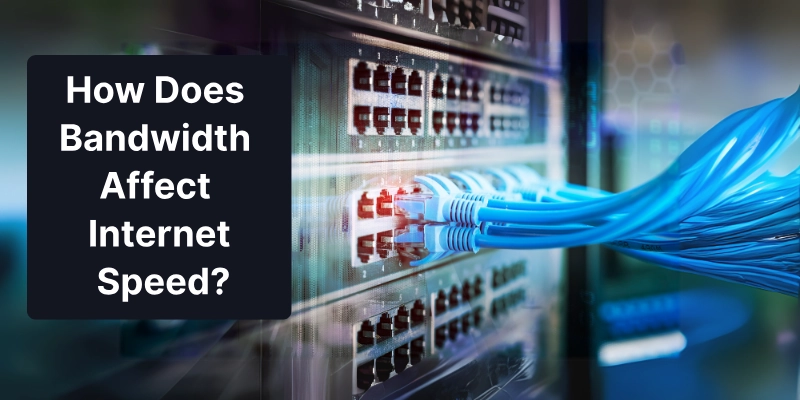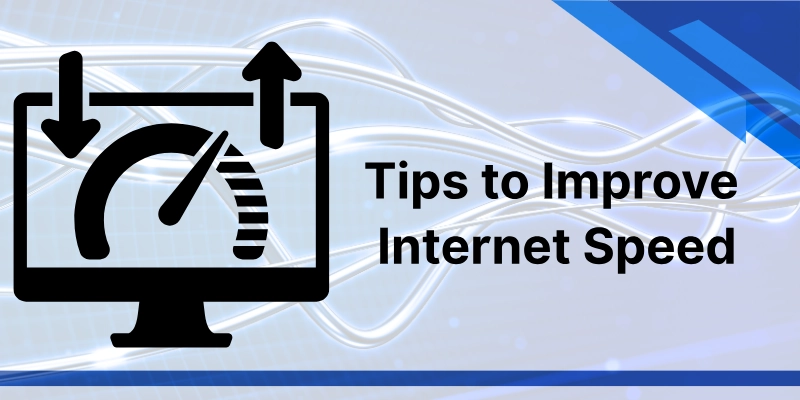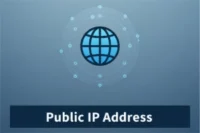How Bandwidth Affects Internet Speed?
Published: 22 Jun 2025
When you’re browsing the internet, streaming videos, or playing online games, you might notice your connection speed changing. This can be frustrating, especially when pages load slowly or streams lag.
A big reason for these slowdowns is limited bandwidth. Bandwidth is the amount of data your internet can handle at once.
But what exactly is bandwidth, and how does it affect internet speed? Let’s explore.
What Is Bandwidth?
Bandwidth refers to the maximum data transfer rate of an internet connection. It determines how much data can be sent or received per second, typically measured in megabits per second (Mbps) or gigabits per second (Gbps) for high-speed networks.
Think of bandwidth like a highway. The more lanes (higher bandwidth), the more cars (data) can travel simultaneously without congestion. When the road is too narrow (low bandwidth), traffic slows down, causing buffering, lag, or slow downloads.
How Does Bandwidth Affect Internet Speed?
The following are some ways bandwidth affects internet speed. Higher bandwidth allows more data to flow, leading to faster browsing and downloads.

1. Faster Bandwidth, Smoother Experience
A higher bandwidth means more data can be transmitted at once, resulting in faster downloads, seamless streaming, and responsive online gaming. For instance, if you have a 100 Mbps connection, you can download files much faster than on a 10 Mbps connection.
2. Shared Bandwidth Can Slow Down Your Internet
If multiple devices in your home are connected to the same network, bandwidth is shared. This can lead to slower speeds during peak hours. For example, if someone is streaming Netflix in 4K while another person is playing an online game, internet speed may decrease.
3. Upload and Download Speeds Depend on Bandwidth
While many ISPs advertise high download speeds, upload speeds are often lower. This is especially important for activities like video conferencing, online gaming, or uploading large files, where higher upload bandwidth ensures smoother performance.
4. Bandwidth and Latency Work Together
While bandwidth determines how much data can be transmitted, latency (the time it takes for data to travel from one point to another) also plays a role. Even with high bandwidth, if latency is high, internet performance may still suffer.
How Much Bandwidth Do You Need?
Different online activities require varying levels of bandwidth:
| Activity | Minimum Bandwidth Requirement |
| Browsing & Social Media | 1–5 Mbps |
| Streaming (HD) | 5–10 Mbps |
| Streaming (4K UHD) | 25 Mbps |
| Online Gaming | 10–25 Mbps |
| Video Conferencing (HD) | 3–5 Mbps (upload) |
| Large File Downloads | 50+ Mbps |
For households with multiple users, a plan offering at least 100 Mbps is recommended for smooth performance.

Tips to Improve Internet Speed If Bandwidth Is Limited
Struggling with slow internet due to limited bandwidth? Try these effective tips to boost your connection speed:
- Use a Wired Connection – Ethernet connections are faster and more stable than Wi-Fi.
- Limit Background Applications – Close unnecessary apps consuming bandwidth.
- Upgrade Your Router – A modern router improves speed and network efficiency.
- Reduce Connected Devices – Disconnect unused devices from the network.
- Use QoS Settings – Prioritize bandwidth for essential activities like gaming or video calls.
- Check for ISP Throttling – Some ISPs slow speeds after exceeding data limits.
Conclusion
Bandwidth plays a crucial role in determining your internet speed. Higher bandwidth allows for faster data transfer, while congestion, latency, and device-sharing can slow down performance. By understanding your bandwidth needs and optimizing usage, you can enhance your internet experience for work, gaming, and entertainment.
Do you experience slow internet? Consider upgrading your plan or optimizing your network settings to boost your speed!
FAQs
Below are some of the most frequently asked questions about how bandwidth affects your internet speed. These answers will help you understand and improve your connection.
Bandwidth is the total capacity of your internet connection, while speed is how fast data travels through that connection. Higher bandwidth can support faster speeds, especially with multiple users or devices.
Use free online tools like Speedtest.net or Fast.com to measure your current bandwidth. These tools show your download speed, upload speed, and latency.
Yes. Increasing your bandwidth can lead to better speed and performance, particularly when multiple devices are connected or heavy tasks like streaming and gaming are being done at once.
Slowdowns at night are usually caused by peak usage hours. When many users are online in your area, it creates congestion and reduces available speed from your internet provider.
For 4K streaming, you need at least 25 Mbps per device. If multiple devices are streaming or downloading at once, aim for 100 Mbps or more to avoid buffering.
Use a wired Ethernet connection, close unnecessary apps, and enable QoS settings on your router to prioritize gaming traffic. Also, limit the number of devices on your network during gameplay.
Yes, video calls need stable bandwidth to run smoothly. For HD video conferencing, a minimum of 3–5 Mbps upload/download speed per person is recommended to avoid lag or disconnection.
Yes, using a VPN can sometimes slow down your speed because your data is routed through secure servers. The impact depends on the VPN’s server location and encryption level.
It depends on your usage. For sending large files, video calls, or live streaming, upload speed is crucial. Most people use more download speed, but upload is equally important for creators.
If your speed drops consistently during specific times or on certain sites, your ISP may be throttling your connection. Try comparing regular speed tests with and without a VPN to detect it.

- Be Respectful
- Stay Relevant
- Stay Positive
- True Feedback
- Encourage Discussion
- Avoid Spamming
- No Fake News
- Don't Copy-Paste
- No Personal Attacks

- Be Respectful
- Stay Relevant
- Stay Positive
- True Feedback
- Encourage Discussion
- Avoid Spamming
- No Fake News
- Don't Copy-Paste
- No Personal Attacks





